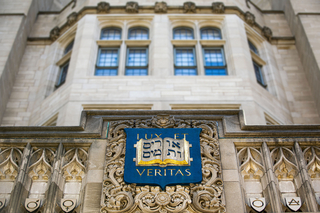Methane from Animal Agriculture: Finding and Acting on the Largest Methane Source
Methane is a greenhouse gas that is over 80 times more powerful with respect to trapping heat over 20 years than carbon dioxide. Animal agriculture is one of the largest sources of methane emissions in the U.S. and the world. The emissions come from two primary sources: first, cattle constantly belch methane, and second, animal manure, often stored in enormous pits, releases enormous quantities of methane (and nitrous oxide). Concentrated animal feeding operations (CAFOs), large industrial scale facilities that confine thousands or tens of thousands of animals, are among the largest point sources of methane. However, unlike oil and gas facilities, CAFOs. typically are not required to report their emissions of methane or other greenhouse gases. (This lack of regulation is not limited to greenhouse gases. In fact, CAFOs are excused from reporting many emissions that other industrial facilities must report, including emissions of extremely hazardous substances.) As a result, CAFOs’ role as significant drivers of climate change has escaped most public notice, policymaker attention, and appropriate regulation.
Fortunately, due to the new availability of remote sensing (satellite imagery), CAFO location datasets, and emission models (calculating emissions from animal inventories), it is now becoming possible to identify these pollution sources. The Bekenstein Fellow will help Earthjustice’s Sustainable Food and Farming team draft a report and other public-facing materials analyzing these pollution sources, while also conducting factual, scientific, policy, and other research necessary to support potential legal advocacy focused on securing appropriate oversight of CAFO emissions.
Qualifications
- Excellent research, analytic, writing, and communication skills.
- Strong and demonstrated work ethic, good judgment, initiative, and creativity.
- Ability to work well independently and in a team-oriented atmosphere.
- Strong skills in law and policy advocacy
- Comfortable working with complex scientific analysis
Timeline
The Bekenstein Fellow will spend the first week or two reviewing compiled materials relating to animal agriculture and methane emissions, the existing literature on CAFO location datasets and emission models and the prior work of the team to create a database of CAFO emissions of conventional and greenhouse gas pollution. The Fellow will then spend approximately four weeks working with the Sustainable Food and Farming team to research and develop potential legal, policy, and public communications advocacy options based on this database, including potentially developing data visualizations, gathering personal testimonies, and examining health and environmental impacts. During the last four weeks or so of the Fellowship, and depending on the Fellow’s graduate program, the Fellow will focus on helping to craft and prepare written materials – for example, legal, communications, or policy strategies – based on the prior work.
Background
Earthjustice is the nation’s leading environmental law organization. Wielding the power of law, Earthjustice partners with our clients to take on the most critical fights of our time — fights to protect the incredible biodiversity and wild places of the planet; to avert climate disaster by transitioning society away from fossil fuels toward clean energy; and to safeguard the right of all people to a healthy environment. We are here because the earth needs a good lawyer.
Founded in 1971, Earthjustice has a distinguished track record of achieving significant, lasting environmental protections. We achieve this by hiring people who share a passion for justice and a healthy environment. Our headquarters are in San Francisco with offices in Anchorage, Bozeman, Chicago, Denver, Honolulu, Houston, Juneau, Los Angeles, Miami, New Orleans, New York, Seattle, Tallahassee and Washington, D.C.
Earthjustice’s Sustainable Food & Farming Program (“SFF”) engages in litigation and advocacy to improve our nation’s food systems, from crop selection and farming practices to food processing and sustainability. Working in partnership with communities, advocacy groups, scientists, and others, we fight for safe and healthy food, climate-friendly farming, and justice throughout the chain. We take on cases with regional and national scope.
